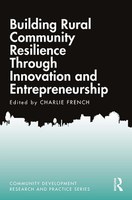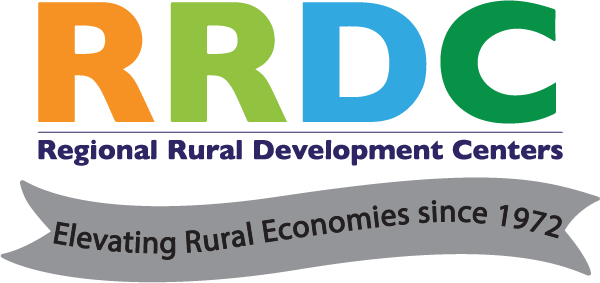Contributing to the Development of More and Better Markets
The RRDCs are contributing to the development of new business opportunities, and to the resilience of existing businesses, not only for farmers and producers but also for the rural communities whose economic health is critical to a strong agricultural sector.
Supporting the Sustainable Development of the Recreation Economy Nationwide

As longtime partners of the National Extension Tourism network (NET), the RRDCs are collaborating with NET to support the sustainable development of the recreation economy nationwide through partnership-focused approaches that expand Cooperative Extension’s capacity to develop and deliver research-based resources. The RRDCs are providing leadership and administrative support to the newly formed National Extension Outdoor Recreation Working Group, which is planning a national assessment of outdoor rec-related programming and resources to identify gaps and opportunities. The RRDC in the South has developed and piloted CREATE BRIDGES, an initiative that focuses on the important retail and tourism economic opportunities that often form a considerable portion of rural economies and employment.
Creating an Effective Support System for Farm Operators to Succeed in Agritourism

The RRDC in the Northeast has partnered on this USDA NIFA-funded project aimed at developing research-based information and guidance for farmers looking to diversify their incomes through agritourism activities. This project recently released a set of fact sheets that provides comprehensive insights into the demographics of U.S. farms that offer agritourism activities sell food directly to consumers or both. The fact sheets are available for all 50 states and are intended to help local decision-makers, farmers, and the organizations that support them in their efforts to strengthen and expand agritourism enterprises.
Local and Regional Food Systems

The RRDC in the South provides organizational support and coordination with the Local and Regional Food Systems multi-state group, SERA-47. This integrated Extension and research initiative seeks to advance interdisciplinary collaboration to address emerging issues in the realms of local food system policy, environmental change, and economic development and to identify best practices.
Digital Access

Using the Digital Access Continuum (aware, available, access, adopt, advance) the RRDC in the South partners with the National Digital Education Extension Team (NDEET) and the Extension Committee on Organization and Policy (ECOP) Program Action Team on Broadband Access and Digital Skills. Efforts include supporting and coordinating research and Extension programming to close the digital divide to help improve quality of life by advancing digital capital in the realms of education, employment, and economic development. The network is currently working to develop a national Digital Volunteer Initiative
Future Opportunities for Rural Workforce and Rural Development (FORWARD) Curriculum

The FORWARD curriculum is designed to support Cooperative Extension Professionals working with rural communities to address workforce development issues with special emphasis to identify and address the needs of rural, low-income workers and their employers. The Association of Public and Land-grant Universities (APLU) and the RRDC in the North Central region led the FORWARD project with support from Ascendium Education Group. The curriculum is available for download in the Community Development Extension Library.
NC1100: A Systems Perspective to Community Resilience: Rural Healthcare at the Intersection of Households and Businesses
Led by the RRDC in the North Central region, this multi-state research group examines innovative and evidence-based approaches for enhancing workforce development and organizational well-being for small rural business owners, with an aim of promoting community prosperity and well-being. Visit the project website.
Sustainable Ag Systems Grant Integrates Research, Education, and Extension Efforts
As part of a USDA NIFA-funded grant to develop more resilient food systems coping with multiple disasters, the RRDC in the North Central region is participating in the extension portion of the grant that will develop and coordinate the curriculum for farmers and which will be deployed as a pilot program in Illinois, Indiana, and Michigan.
Rural Innovation Research
 The RRDC in the Northeast has engaged in several partnerships focused on understanding how rural businesses innovate and how this innovation contributes to economic resilience in rural areas. One such partnership with Dr. Charlie French, program leader and Extension associate professor of community and economic development at the University of New Hampshire, resulted in a book on the subject with contributions from 26 leading community development scholars and practitioners from around the country. Another partnership with the USDA ERS resulted in three research teams using the USDA Rural Establishment Innovation Survey to broaden our understanding of rural innovation. A related five-year USDA-NIFA-funded project, which closed in April 2023, resulted in dozens of publications and presentations that significantly advanced the understanding of this topic. For example, this research team found that the use of cloud computing services contributes to business innovation, and when rural businesses can access the cloud, they do so at similar rates as urban firms and engage in a similar volume of innovation. This finding can be used by policymakers and business-support organizations to foster greater opportunities for rural innovation.
The RRDC in the Northeast has engaged in several partnerships focused on understanding how rural businesses innovate and how this innovation contributes to economic resilience in rural areas. One such partnership with Dr. Charlie French, program leader and Extension associate professor of community and economic development at the University of New Hampshire, resulted in a book on the subject with contributions from 26 leading community development scholars and practitioners from around the country. Another partnership with the USDA ERS resulted in three research teams using the USDA Rural Establishment Innovation Survey to broaden our understanding of rural innovation. A related five-year USDA-NIFA-funded project, which closed in April 2023, resulted in dozens of publications and presentations that significantly advanced the understanding of this topic. For example, this research team found that the use of cloud computing services contributes to business innovation, and when rural businesses can access the cloud, they do so at similar rates as urban firms and engage in a similar volume of innovation. This finding can be used by policymakers and business-support organizations to foster greater opportunities for rural innovation.

